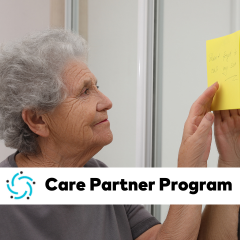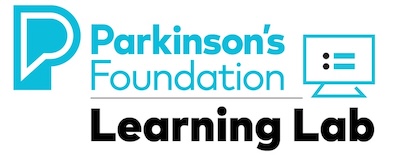Recognizing Early Cognitive Change
 There are many aspects of cognition: thinking, understanding, learning, remembering, problem solving, language, and more.
There are many aspects of cognition: thinking, understanding, learning, remembering, problem solving, language, and more.
In this course, you will learn about some of the earliest changes to thinking and memory that are commonly seen in people with Parkinson’s, how to assess for and monitor these changes, and ways to cope as your loved one with PD experiences early cognitive changes.
Syllabus | |
Introduction to Early Cognitive Change Early Cognitive Change Executive Function PD vs. Aging vs. Medication Ready to Learn More? Pause and Reflect: Executive Dysfunction Recognizing Cognitive Change Executive Dysfunction in PD Identifying Executive Dysfunction at Home The Daily Experience with Cognitive Change Take Home Tip – Multitasking Pause and Reflect: Making a Plan Measuring Cognitive Function Talking to the Doctor Assessing Cognitive Decline Timing of Cognitive Testing The MoCA Test Pause and Reflect: Discussions with Your Doctor Adapting to Cognitive Change Time Management and Planning Take Home Tip – The Value of Reminders Improving Quality of Life Ensuring Safety Driving and Parkinson's Take Home Tip - Safety Care to Talk: Redefining Roles Finding Support Final Words of Wisdom Pause and Reflect: Independence vs. Safety Evaluation | |
The Recognizing Early Cognitive Change course is brought to you, in part, by the support of Right at Home.
Target Audience
This course will be most helpful for care partners who have either not yet noticed cognitive change in their loved one with Parkinson’s or who are beginning to see signs of cognitive change in their loved one.
Learning Objectives
Our hope is that care partners who take this course will be able to:
- Describe what thinking and memory changes can look like in the earliest stages.
- Recognize the symptoms and challenges to share with their loved one’s doctors and other healthcare professionals to help them understand what challenges are most important to address together.
- Identify strategies to adapt daily tasks and discussions to support their loved one’s changing cognition.

 Facebook
Facebook X
X LinkedIn
LinkedIn Forward
Forward